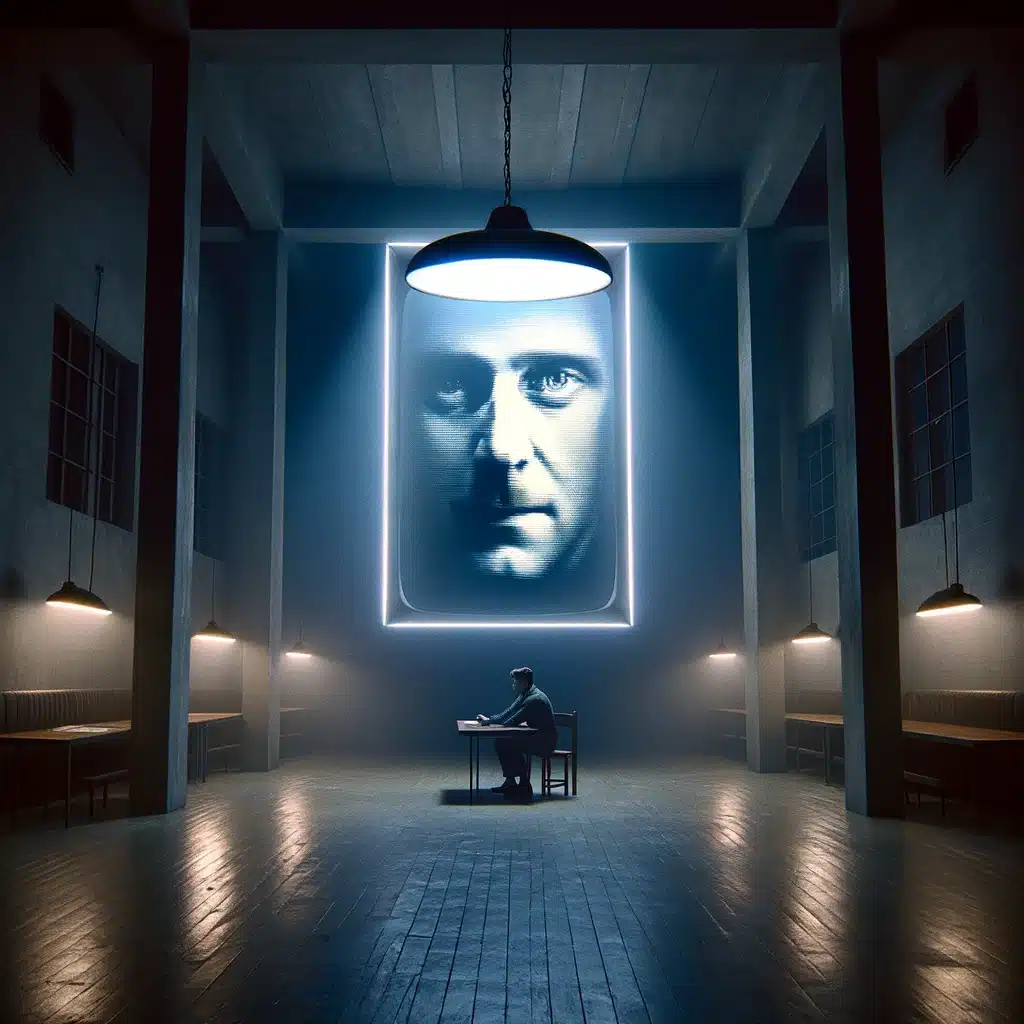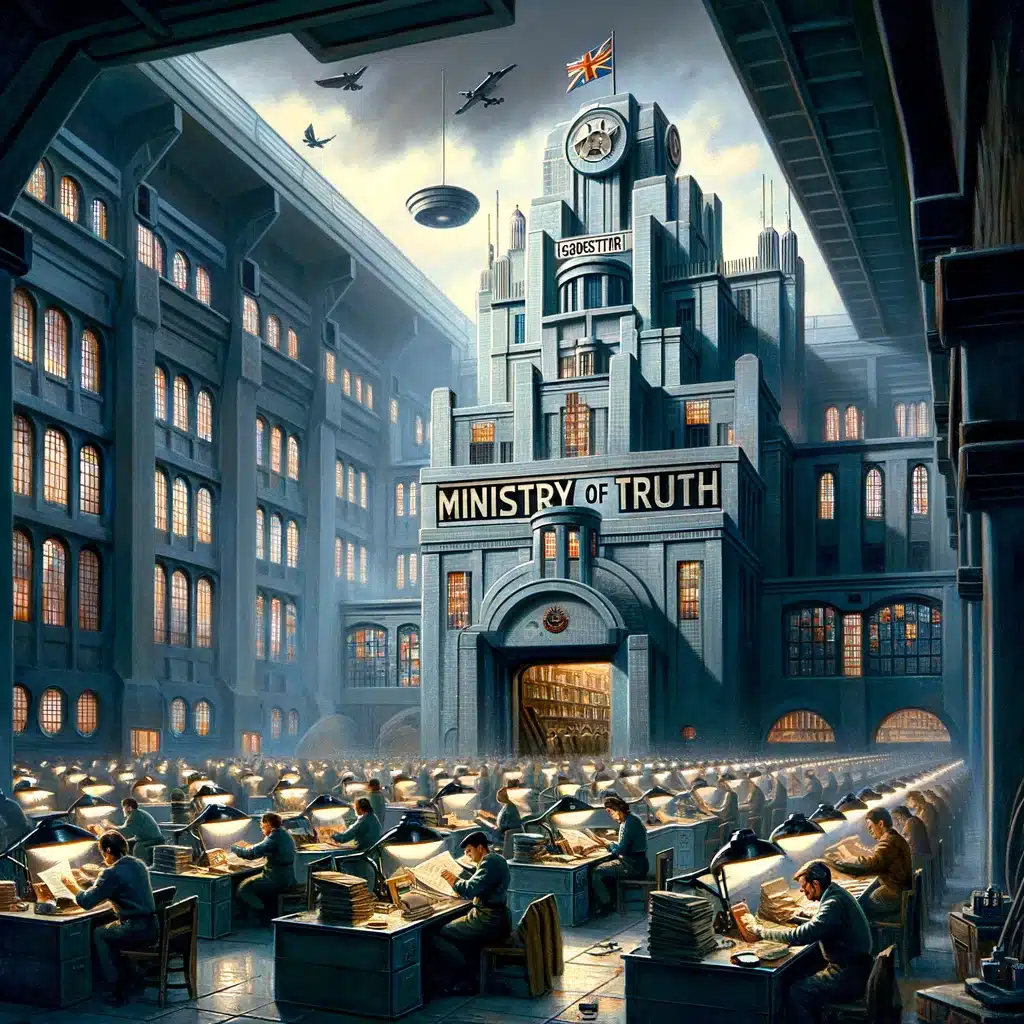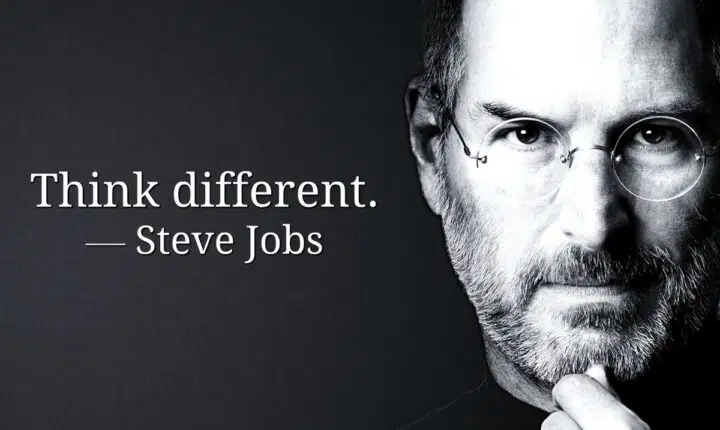George Orwell’s “1984” is a timeless tale of totalitarianism that remains as valid today as it was at its publication in 1949. The story examines how a totalitarian government controls its people and affects their minds. It shows a dystopian future where a totalitarian party rules the fictitious nation of Oceania. Winston Smith, an outer party member, is the narrator and the story’s main protagonist.
In “1984”, George Orwell writes about surveillance technologies like the telescreen and the speakwrite, which reflect many digital devices available today. It’s impressive that Orwell predicted these technologies in 1949. At the time of writing, it looked like a futuristic fantasy, yet Orwell’s foresight shows his futuristic vision. He portrays surveillance methods that are like today’s world. Today’s ubiquitous Digital Devices often compromise our privacy, like the omnipresent telescreen in “1984”.

In the Novel, citizens of Oceania are under constant surveillance. This surveillance creates continuous fear and anxiety among them. Apart from the citizens, such extreme surveillance psychologically affects Winston and Julia (the central characters of the plot) in their daily lives. Even in Winston and Julia’s countryside rebellion, the fear of Big Brother’s omnipresent surveillance is in the background. Winston highlights this dilemma in the story: “Nothing was your own except the few cubic centimetres inside your skull”.

Apart from the constant surveillance, the Party forces people to do “Physical Jerks” every morning and controls sexual relationships, showing how totalitarian regimes can infiltrate and dominate individuals’ lives. The Party controls its citizens’ physical actions and thoughts through its various instruments. The Ministry of Truth makes non-stop propaganda, controls the narrative, and changes history to fit the Party’s needs. To further its control, the Party even invented a new language called Newspeak, which limits people’s thoughts by stopping them from thinking of any ideas not approved by the Party. Winston thinks that if everyone believes the Party’s lie and all records confirm it, the lie becomes the truth in history.

The Party manipulated people’s emotions through events like “The Two Minutes Hate” and “Hate Week”. These events gave the citizens of Oceania a shared enemy to focus on and showed Big Brother as their saviour. The Party changed statistics often to fool people. From a young age, the Party taught children to believe its ideas and become loyal. In this Orwellian society, violence does not bother the children; instead, they enjoy it when it’s used on those who oppose the Party. Moreover, the children appear happy when they witness these individuals being “hanged,” highlighting the dark side of their society.
Orwell’s “1984” is a warning about a bleak future that resembles our modern societies. In the story, Winston believes that freedom is the ability to state that two plus two equals four, and if this is accepted, all other freedoms follow. Throughout the plot progression, the Novel highlights the perils of a totalitarian regime. Through Winston Smith’s tragic story, Orwell wants readers to reflect on the value of individuality, the dangers of spying, and how words can be used as a tool for both liberation and oppression.
“1984” is a significant work that impacts its readers even today. Orwellian society represents an extreme version of a totalitarian dystopia. I loved the plot and noticed similarities with present-day modern societies. I have a greater appreciation for George Orwell’s writing and his foresight after reading “1984”.

My Rating:- ★ ★ ★ ★ ★
1984: Goodreads Rating: 4.19
Reviewed On:
- e-book
- Total Pages: 161
- Genre: Fiction/Satire/Sci-Fi
- 1984: George Orwell




Nice narrative and engaging read
Yes, Absolutely!!
As a reader who recently delved into George Orwell’s classic novel “1984” in the digital age, I was struck by its evergreen relevance and chilling parallels to our modern society. The themes of surveillance, manipulation of information, and the erosion of personal freedoms are more pertinent now than ever before.
Yes, it is.
This title for a blog post definitely sparks interest! It highlights a classic novel, “1984,” and connects it to a very relevant topic in today’s world – the digital age.
Thanks!!
This review gives a detailed knowledge about futuristic vision. By reading this review, one can get to know about digital age.
Thanks!!
This review effectively highlights the enduring relevance of Orwell’s “1984” in the digital age. The reviewer, draws clear parallels between the book’s
surveillance and today’s digital devices. It’s a concise and thought-provoking analysis.
Thanks!!